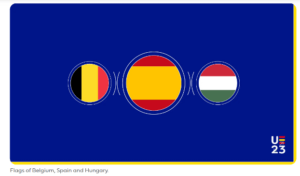Stay in the loop! Subscribe to our mailing list
During the second half of 2023, Spain holds the Presidency of the Council of the European Union. Belgium and Hungary will hold the Presidency in 2024. The new trio adopted a joint programme outlining the common priorities aimed at enhancing the European Union's resilience and strategic autonomy by reinforcing its global (industrial) competitiveness, enhancing Europe's social dimension, and strengthening international partnerships, multilateral cooperation, and security in all its dimensions. The trio will also contribute to reflections on how to integrate new members in a manner that strengthens key European policies.
In this spirit, the main lines of action of the Spanish Presidency are based on four priorities: reindustrialising the EU and guaranteeing its open strategic autonomy, advancing in the green transition, promoting greater social and economic justice, and strengthening European unity. During its Presidency, Spain will also promote institutional deepening and improved decision-making processes, as well as the enlargement of the EU.
In the field of research and innovation (R&I), the focus lies on digital transitions, open strategic autonomy and cooperation with the countries of the Mediterranean arc and those of Latin America and the Caribbean. Additionally, there is an emphasis on strengthening of R&I ecosystems and the role of R&I in policy-making. At an Informal Ministerial Meeting on Research held in Santander on 27-28 July, EU ministers discussed the planning of the new Horizon Europe 2025-2027 programme based on a closer alignment of national and EU objectives and policies as well as a new European agenda for science diplomacy.
Education is featured quite prominently in the Spanish presidency programme as Spain aims “to work for the future of young people by establishing an inclusive, digital and competitive educational framework”. More specifically, the following activities in the field of (higher) education, building both on the outcomes of the preceding Swedish Presidency and moving forward, are planned:
ACA will be supporting the Spanish presidency programme by closely collaborating on the aforementioned topics with its member, the Spanish Service for the Internationalisation of Education (SEPIE), as well as with other relevant EU higher education stakeholders through multiple fora.

Photo credit: Spanish Presidency of the Council of the European Union